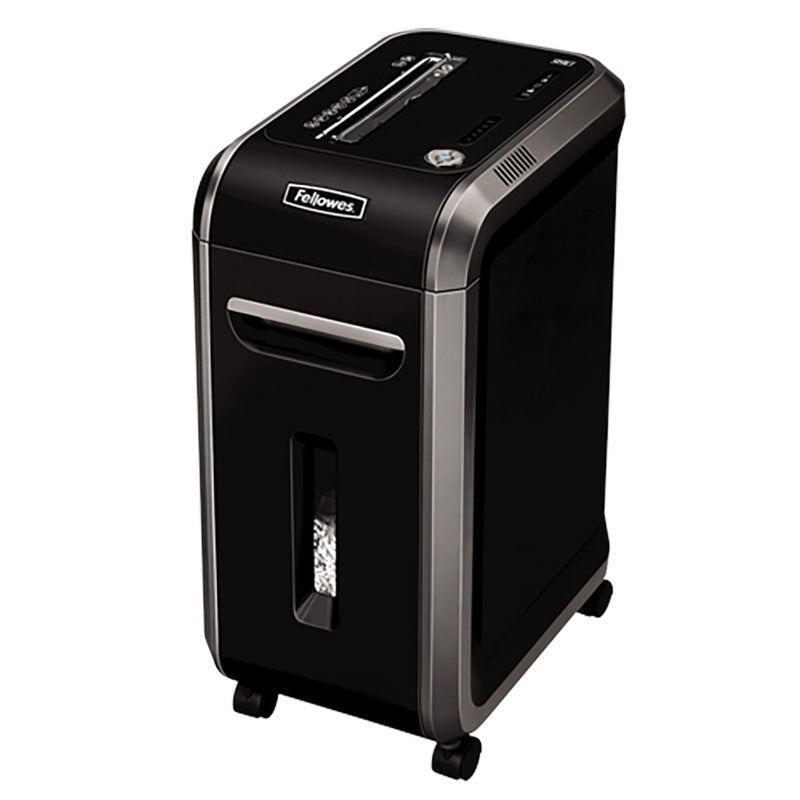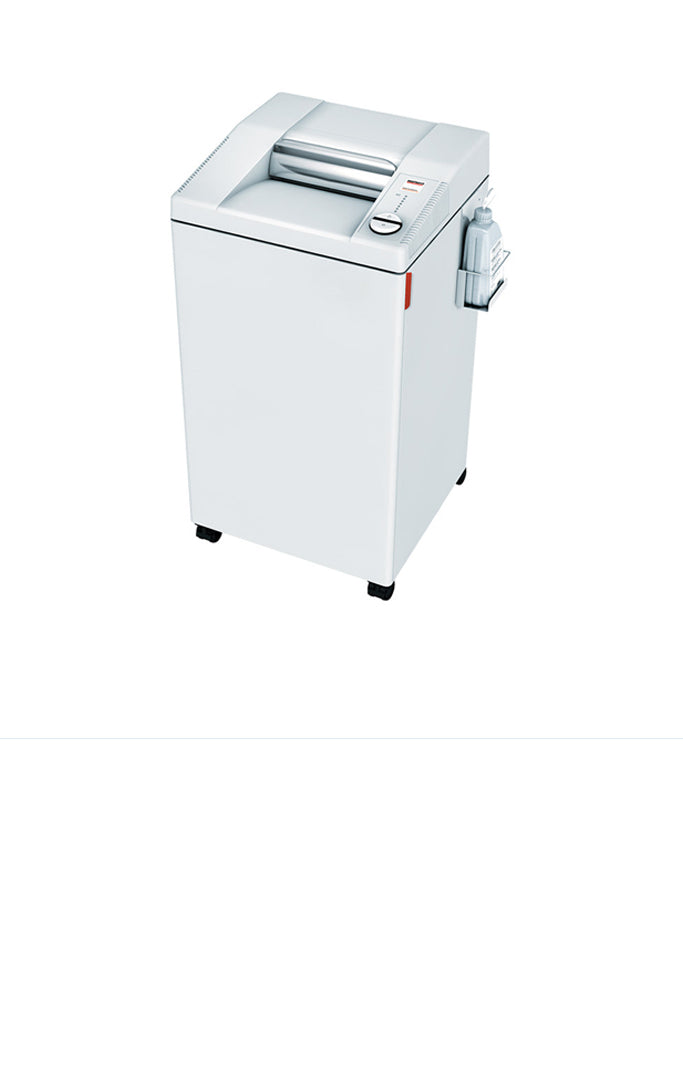When you want to make space on your hard drive, simply hitting ‘delete’ is often enough. However, if you want to truly erase files and information, with no traces left, that won’t suffice.
The truth is that all data leaves a kind of echo of itself. Just like how you can recognize words in an echo, the right technology and people can detect data in what’s left behind, too. With that, it doesn’t take long to rebuild data into the file you tried to delete. Even snapping a hard drive in half won’t do the job of total erasure.
That’s why so many rely on a degausser, which has become the go-to method for data destruction all over the world. Small businesses that need to protect their customers' data, and major military organizations with important codes and information considered top secret use degaussers, and understand the value of data destruction and security.
We know this because we’ve sold degaussers and data destruction devices to those examples, and every company in between. That means we’re well equipped to write the ultimate guide on degaussing.
In this article, we’re going to answer some of the following questions:
- What is degaussing?
- How does it work?
- Why is it more reliable than hitting ‘delete’?
- How does magnetic media work?
- What should I look for when purchasing a degausser?
- …and much more
We would also encourage you to contact our team directly if you have any specific questions about this field.
Section 1: Defining Degaussing and Magnetic Media
With something as complicated as cyber security and data destruction, it’s important to establish an understanding of the basics.
What is data destruction?
Data destruction might sound extravagant, but the truth is that we’ve been destroying data in our own homes for years. There are machines that cost tens of thousands of dollars that will destroy hundreds of devices in one go, but there are also strip cut paper shredders that have been a mainstay of home offices for years.
Destroying information and data is needed for lots of different reasons, including:
- To protect employees and customers
- To meet legal requirements and not violate acts like FACTA and GLBA
- To protect reputations
- To save money and time
- To protect future plans and developments
For some people, more simple methods of data destruction will suffice. However, for more important data, degaussing will prove to be essential.
What is degaussing?
Degaussing is when you use a data destruction device to magnetically erase all data from a storage device, like a hard drive. This is needed because choosing to delete a file through your device itself doesn’t typically mean all of the evidence is gone.
Imagine you’re on a call with your bank. You write down your credit card information in a notepad in front of you. Once the call is done, you don’t need it anymore, so you want to erase what you’ve written.
Non-degaussing destruction is like scribbling out the numbers with a pen. To the naked eye, it looks like the information has been erased. However, if you look closely between the scribbles or at the indent on the other side, you might still be able to make out the numbers.
Degaussing is the equivalent of shredding that notepad and setting the waste on fire. When it comes to IT asset disposal and the protection of data, degaussing will provide the level of data erasure needed.
How does magnetic media work in relation to degaussing?
Information can be shared from device to device through magnets, which are also used to write new information and retain existing sets.
Computers store data in a series of 1’s and 0’s, a machine language commonly known as binary code. These are represented within bits, which is the smallest unit of data storage. These are often visualized as tiny blocks, which can be magnetized into a permanent state.
In a typical hard drive, this happens when a ‘write head’ runs over the physical space of the data and directs a strong magnetic field into the bit. Depending on what is required for the data, this turns the bit into either a 1 or a 0. A ‘read head’ then detects these magnetic fields and begins the process of translating it into visual data that we understand.
Section 2: The Erasure Process: How to Degauss a Hard Drive
Now that we have defined key aspects of the degaussing process, such as magnetic media and the value of data destruction, let’s explore how it actually works.
How does degaussing work?
Magnetics are the key to retaining, reading, and writing most forms of data. The process of degaussing is great for destroying data because it physically scrambles the magnetic fields of these bits.
A degausser is essentially a really powerful magnet. It generates a controlled magnetic field that can disrupt and eliminate other magnetic fields, particularly within the bits that have been written into data. It does this by changing the magnetic domain of the data storage, rendering it unreadable and - therefore - unrecoverable.
That means that devices like a degaussing wand essentially randomizes the data pattern. This doesn’t mean that your Microsoft Word document would simply have the letters in it jumbled up. It means that the file itself and the bits representing it would be completely scrambled so there is no file, or trace of it, for humans or machines to detect.
This is why degaussing machines are so effective on magnetic media like magnetic tape, floppy disks, hard disk drives, etc. However, it does not work with devices that store data non-magnetically, like optical compact discs (CD) or cassettes. For data destruction of non-magnetic data, we’d recommend looking at optical media destruction products, including hard drive shredders for SSDs (Solid State Drives) as these also don’t store data magnetically.
How is degaussing measured?
The power of a degausser is measured in Gauss units. For example, a compact magnetic degaussing wand may have a magnetic flux density of 12,000 Gauss units, whereas a Datastroyer hard drive degausser may emit 20,000 Gauss units.
Magnetic storage devices are also measured with their own unit, called Oersted units. Different storage devices have different Oersted unit ratings. The degausser wand has the ability to erase media on a device with up to 5,000 Oersted units. The term ‘coercivity’ can also be used interchangeably with Oersted units, and different formats of tapes and drives having different coercivity levels.
Regardless of the terminology, the lower the coercivity/Oersted levels are of the device your sensitive data is on, the harder it will be to demagnetize and wipe. No matter what coercivity/Oersted level,, you will surely be able to find a degausser to get the job done at Whitaker Brothers.
How reliable is using a degausser for data security and hard drive destruction?
By using the metrics described above, you can quantifiably figure out if degaussing would work for you. If there are enough Gauss units in the degausser compared to the Oersted units in the device it is wiping, then it will reliably wipe the information off the device.
In fact, degaussing is so thorough that in most cases you cannot reuse a hard drive after it has been degaussed. This is because deguassing removes all information held within the drive, so it can struggle to communicate with other devices and to even acknowledge that it is a hard drive itself.
It is safe to say that this method is incredibly effective for magnetic storage media. However, in some cases, you may want to consider an alternative, or another option as part of the data destruction process that also includes something like an SSD degausser.
What are some alternatives to this type of data destruction?
Alternatives to degaussing include deleting your files through the device itself (such as right clicking and selecting ‘delete’) or physically destroying the device itself. However, these methods aren’t always entirely reliable if you want a full peace of mind.
Using the basic deletion process on a computer can still leave behind breadcrumbs of the deleted information, and people can still reconstruct the breadcrumbs into the original version. More advanced software can do a better job, but can also take hours or longer to delete information based on the amount of data involved.
Physically destroying the data is a viable method. Hard drive crushers, such as those produced by Datastroyer, can obliterate most hard drives. However, we’d consider this ‘second stage destruction.’ Degaussing should always be delivered first if the media is magnetic, and then be followed up with physical destruction.
By following these first and second stages of destruction, you can be absolutely sure that no traces of your data will remain on your device. Without degaussing, you run the risk of magnetic data still being recoverable.
Of course, not everything can be degaussed. As we’ve mentioned, non-magnetic media like the following will require other methods:
- Solid state drives (SSD)
- CD, DVD, and Blu-Ray discs
- USB memory sticks
These store data without relying on magnetic waves, so a degausser wouldn’t be as effective as with other storage devices.
Section 3: Finding The Right Data Destruction Company & Degausser For You
There are a lot of things to consider when destroying data. This section tackles what you should keep in mind when deciding on your degausser and the company to buy from.
What should you look for when buying a degausser?
Buying a data destruction device isn’t as simple as buying a bottle of water. With the drink, you just want to know that it’s water and it’s affordable. For most people, the questioning ends there.
However, buying a degausser is a much larger investment. Therefore, you want to buy from a company that can do more for you than just take your money. A peace of mind is really important.
That means that you should work with a company that is trusted by other businesses. Being the first customer of a new business can be a risk you might not want to take, so look for a provider that is partnered with other businesses.
For example, Whitaker Brothers has been trusted by major military installations to keep their data safe. That means we’re comfortable handling and destroying some of the most sensitive information around, so typical office data - while still incredibly important - is something we’re more than comfortable handling.
The company should also provide NSA and GSA listed products, to make sure their products meet the standard level set by these agencies. If they’re selling products that they didn’t directly produce themselves, ensure that their products come from approved dealers. For example, we use a nationwide network of approved manufacturers and sellers. This, along with our Preventive Maintenance Agreement that comes with every piece of equipment we sell, should give customers the comfort they need with a large purchase like this.
While it isn’t as important as quality of service, price matching is something we’d also encourage you to look for. For a frame of reference, you can explore our price match guarantee here.
What questions should I ask data destruction companies?
We’ve collected some questions that you should ask to make sure that your needs will be met:
- Are your products NSA and GSA listed?
- Do you have over 15 years worth of experience?
- Are any maintenance agreements provided with equipment?
- Do you price match?
- Are you trusted by any government bodies?
- Can your service team assist customers before and after their purchase?
While Whitaker Brothers meet all of these requirements, we’d encourage you to still search the internet and find the provider that’s right for you.
Conclusion
It’s easy to get carried away with the technical details when it comes to data destruction. There are a lot of different terms and tools to take in. However, in most cases, you don’t need to understand how the magnetic field strength of a hard drive works, or the intricacies of HIPAA and ITAD regulations.
All you need to understand is that data destruction is integral to organizations of all sizes. Not having a proper electronic waste process for HDDs and other media means simply waiting for an issue to arise. Be preventative and secure your own degausser or degaussing partner to avoid the problems before they arrive.
Here at Whitaker Brothers, we are industry leaders with over 75 years of experience. We provide you with the tools to get the job done and the team to help you along the way. Please take a look at our products, and contact us if you have any questions whatsoever.









